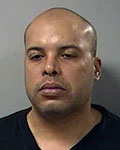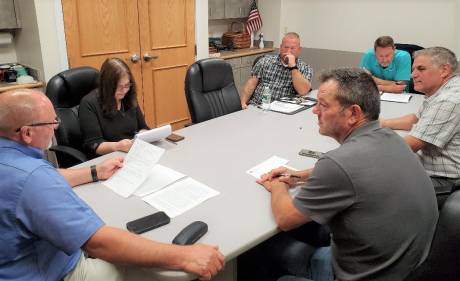County officials to meet with Darien Town Board over what they see as a Medicaid tax 'misunderstanding'
Genesee County Manager Matt Landers and Legislature Chair Rochelle Stein are prepared to meet with the Darien Town Board over what they say is a “misunderstanding” about the practice of including the Medicaid portion of the tax rate on the annual county tax bill.
The situation was brought to the legislature’s attention via a letter dated April 7 from the Darien Town Board on behalf of a longtime Darien Center resident who objected to having to pay $2.90 per thousand of his assessed property value toward the county’s state-mandated Medicaid costs.
The resident wrote to the town board, bemoaning the fact that he was charged $782.14 in taxes for Medicaid, this coming on top of the $340 per month that he and his wife already have deducted from their Social Security checks for Medicare.
In the letter, he suggested that instead of taxing property owners “for other persons’ Medicaid,” the county could raise the sales tax rate slightly from the current 8 percent (of which 4 percent stays in the county) to cover the cost.
The town board, in turn, drafted its letter – supporting the resident’s viewpoint.
“As most County Taxpayers, he (the resident) and his wife do not use the programs offered such as HEAP, SNAP, free medical insurance, rent subsidy, over-the-county general use cards, etc.,” the letter states. “(As the expense is applied to property owners only), this burden is not shared equally by all county residents.”
The town board’s letter indicates a sales tax increase from 4 to 4 ½ percent would generate approximately $3.1 million per year “and these funds would be dedicated to stabilizing the Medicaid tax bill.”
At Wednesday’s Ways & Means Committee meeting, Landers and the legislature addressed the resident’s concerns and the Darien Town Board’s letter and accompanying resolution that authorized mailing it to county officials.
Landers noted that the county has broken out the Medicaid share of the tax rate on its annual bill since 2004 – doing so for informational purposes.
“The county tax bill is broken up into two lines,” Landers said. “It really is the total dollar amount – the whole levy in taxes and then we have a line broken out separately for the piece that is attributable to Medicaid. This was done purely as a message to taxpayers to understand how much of their property taxes are going towards Medicaid.”
He said that each year the county uses the same formula to figure out the mandated Medicaid expense.
Landers then pointed out that the county’s 2022 tax rate was flat (at $9.16 per $1,000, which includes the $2.90 per thousand Medicaid tax) “because you remember the rates have been dropping as assessments are going up.”
“I think it’s more or less just a misunderstanding of the way our tax bill is (displayed). It’s purely informational only,” he said, noting that the real property tax office could break the rate out “into a 100 different items but that would become more complex.”
Furthermore, the county doesn’t have the authority to raise the sales tax rate, Landers said.
Ways & Means Chair Marianne Clattenburg put it another way, stating, “The idea (of placing the Medicaid portion on the tax bill) was to show the taxpayers that if we didn't have this Medicaid mandate on our backs, this is what your taxes would be.”
“If they just look at that other number ($6.25 per $1,000 of assessed value), that's where they're getting their police, their EMS (Emergency Management Services), their roads, their bridges -- everything that we do in the county is that other item, and that Medicaid is a New York state mandate,” she explained.
Clattenburg acknowledged the “misconception” has grown from one citizen to the entire Darien Town Board, “which is under the impression that we have a control over that number, which we don't.”
After several more minutes on the topic, legislators decided to respond to the town board, starting with a letter and following that up by having Landers and Stein attend a board meeting in Darien in the near future.
Legislator Brooks Hawley agreed with that, saying, “I think it would be better if it was face-to-face instead of sending letters back and forth. It could be misconstrued.”

















